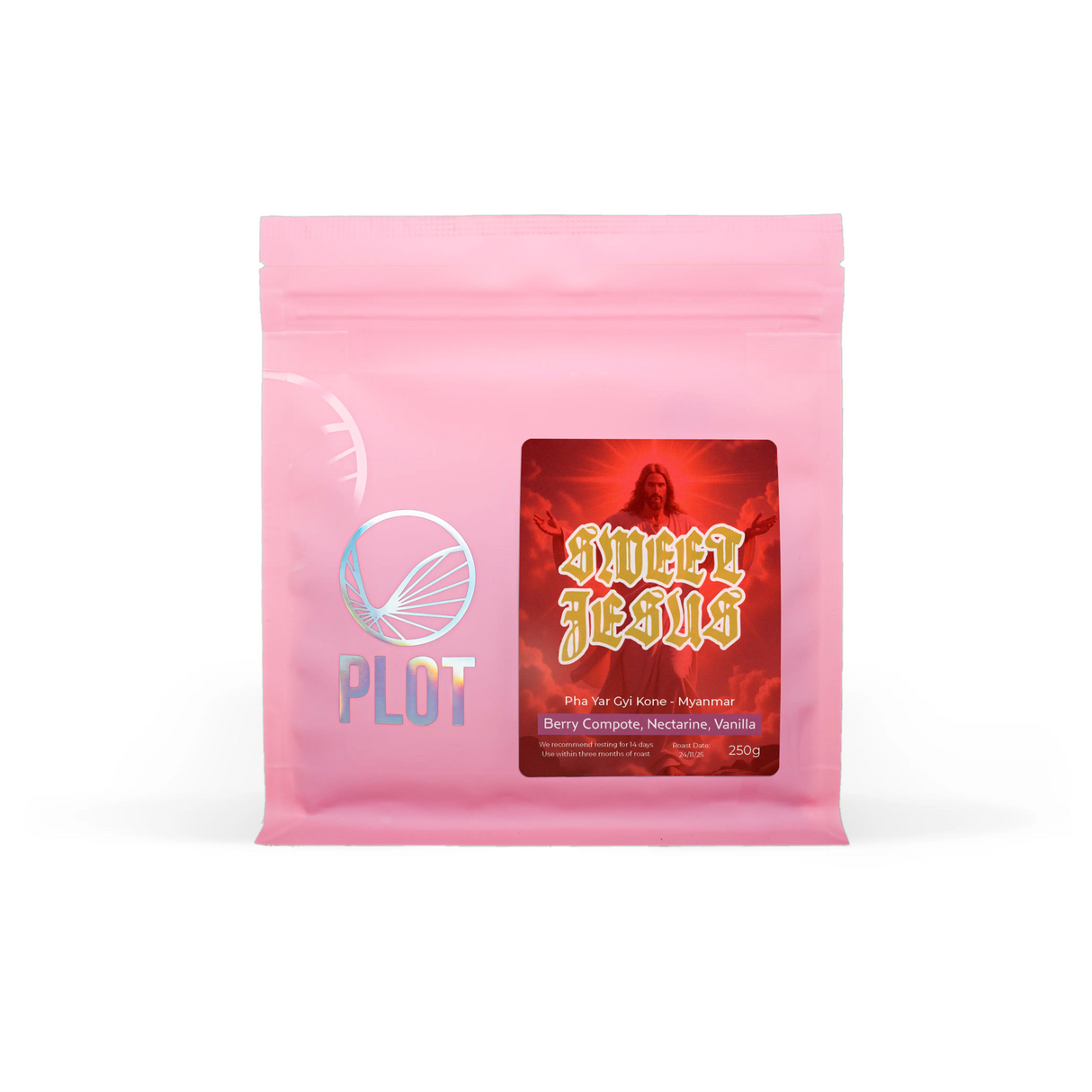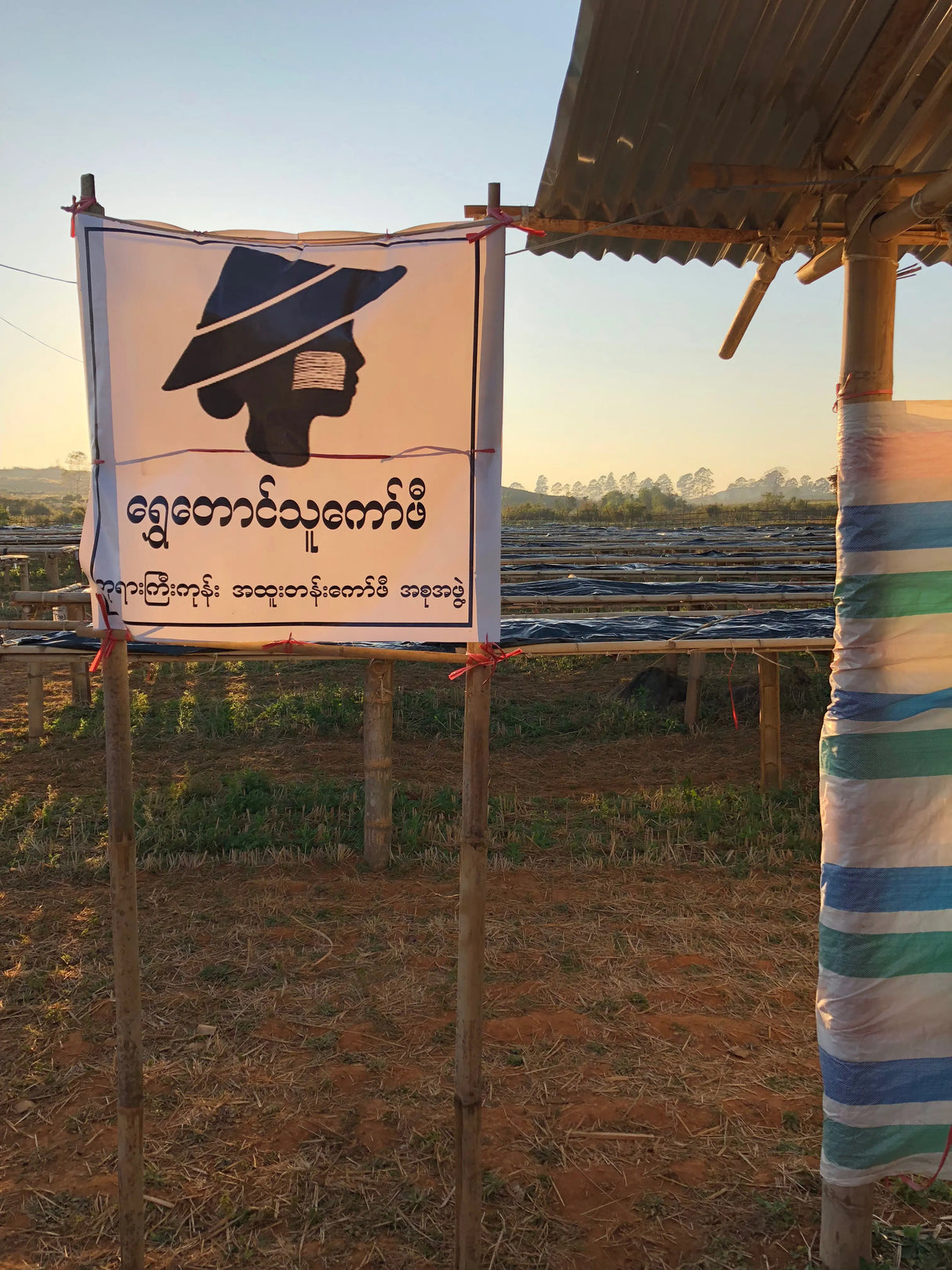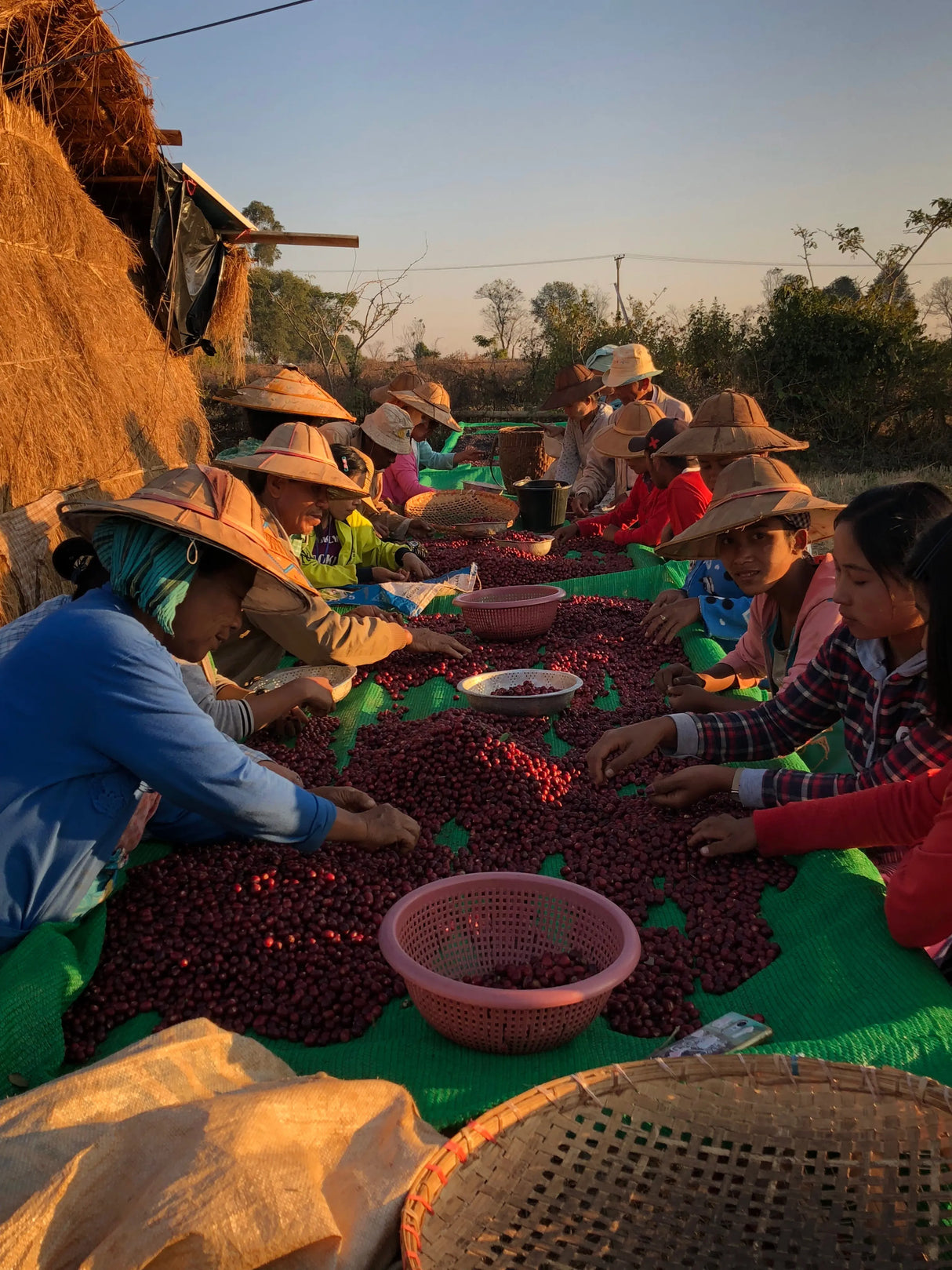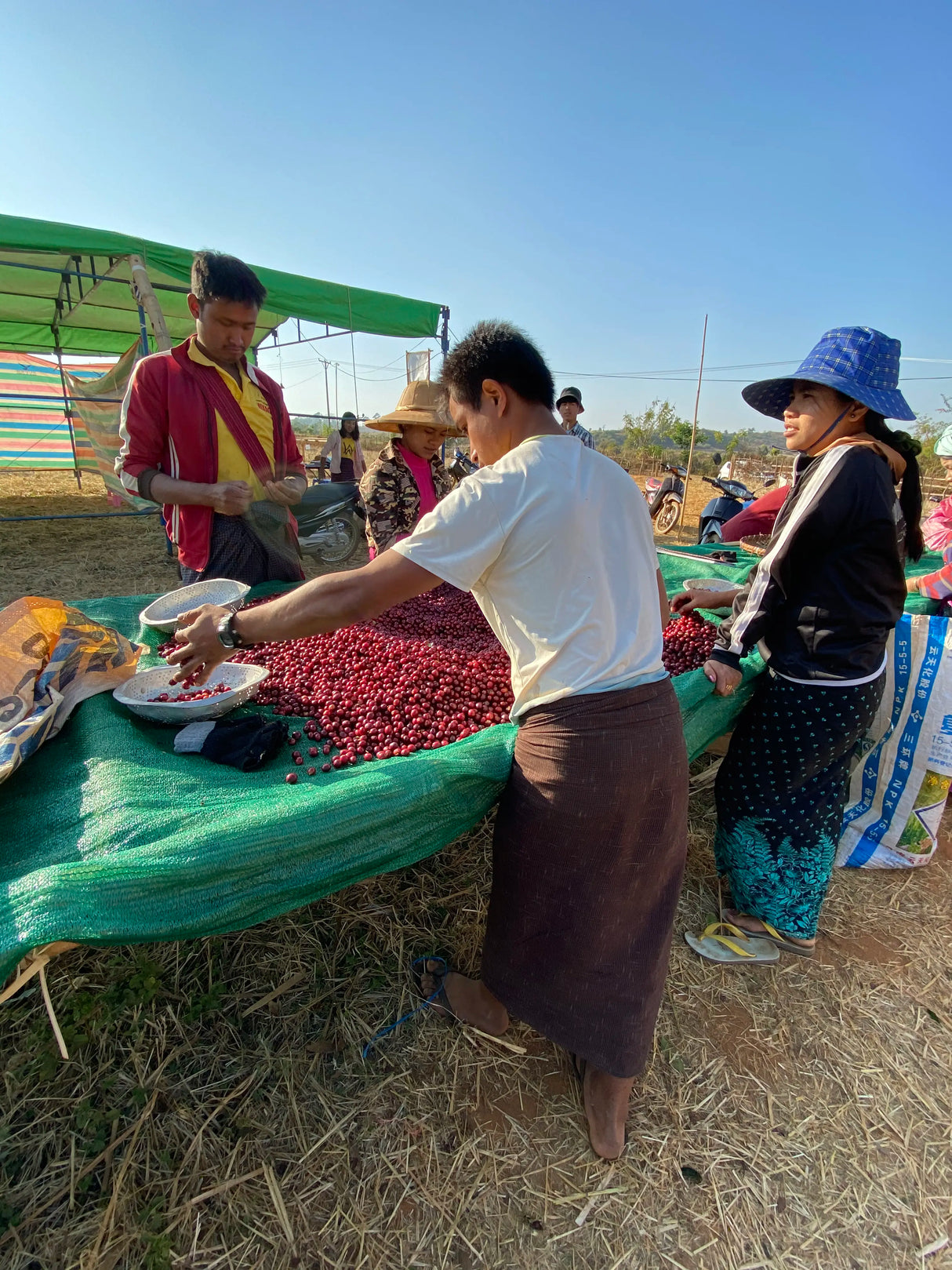SWEET JESUS
£18.00
Unit price
/
Unavailable
SWEET JESUS - 250g is backordered and will ship as soon as it is back in stock.
Lot Info
Lot Info
Producer
Producer
Cultivar
Cultivar
Process
Process
Traceability
Traceability
| Producer | Smallholders from Pha Yar Gyi Kone village (part of Shwe Taung Thu farmers group) |
| Location | Ywangan, Shan State, Myanmar |
| Elevation | 1,323 masl |
| Cultivar | Red Catuaí |
| Preparation | Natural |
| Harvest | December - April 2025 |
| Arrival | November 2025 |
| Exporter | Indochina Coffee |
| Importer | Indochina Coffee |












